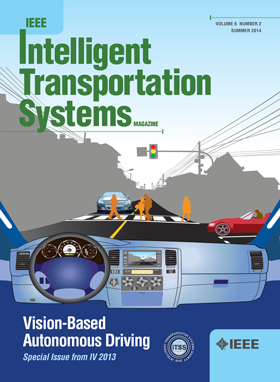Digital Twin-Based Task-Driven Resource Management in Intelligent UAV Swarms
IF 7.9
1区 工程技术
Q1 ENGINEERING, CIVIL
IEEE Transactions on Intelligent Transportation Systems
Pub Date : 2025-02-04
DOI:10.1109/TITS.2025.3531120
引用次数: 0
Abstract
UAV swarms offer substantial opportunities for Search and Rescue (SAR) applications. Confronted with numerous concurrent sensing tasks in complicated environment, resource-scarce UAV networks need a dynamic, task-driven deployment and resource configuration strategy for multi-UAV swarm coordination to ensure the efficient execution of sensing tasks. This paper introduces a Digital Twin (DT)-based collaboration architecture for resource management in UAV swarms, connecting realistic task crowdsourcing and virtual traffic flow scheduling to achieve a complementary multi-UAV swarm allocation. We propose an intelligent dynamic task crowdsourcing scheme that manages the swarm scale and membership configuration of multiple UAV swarms based on theoretical evaluation results. The architecture constructs DTs of UAV swarms and shifts the scheduling of traffic flow paths to the virtual world, thereby sidestepping the overhead of routing configuration and network reorganisation. With the aid of a traffic flow allocation algorithm based on Stochastic Network Calculus (SNC), the virtual swarm pre-schedules traffic flows and assesses end-to-end delay theoretically, so as to achieve a collaborative deployment of sensing, computational, and communication resources within the swarm. The simulation results substantiate that our architecture can uphold a 90% achievement ratio for task requirements while keeping UAV costs comparable to other algorithms.求助全文
约1分钟内获得全文
求助全文
来源期刊

IEEE Transactions on Intelligent Transportation Systems
工程技术-工程:电子与电气
CiteScore
14.80
自引率
12.90%
发文量
1872
审稿时长
7.5 months
期刊介绍:
The theoretical, experimental and operational aspects of electrical and electronics engineering and information technologies as applied to Intelligent Transportation Systems (ITS). Intelligent Transportation Systems are defined as those systems utilizing synergistic technologies and systems engineering concepts to develop and improve transportation systems of all kinds. The scope of this interdisciplinary activity includes the promotion, consolidation and coordination of ITS technical activities among IEEE entities, and providing a focus for cooperative activities, both internally and externally.
 求助内容:
求助内容: 应助结果提醒方式:
应助结果提醒方式:


